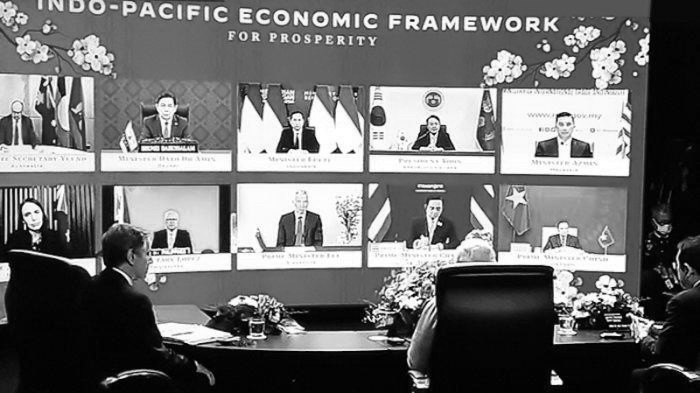Indo-Pacific Economic Framework for Prosperity Begins

A group of Indo-Pacific nations has banded together to begin the process of developing an Indo-Pacific Economic Framework for Prosperity. This framework is intended to advance resilience, sustainability, inclusiveness, economic growth, fairness, and competitiveness amongst participating nations.
The countries taking part include the United States, Australia, Brunei Darussalam, India, Indonesia, Japan, Republic of Korea, Malaysia, New Zealand, Philippines, Singapore, Thailand, and Vietnam
In a statement from the Whitehouse on the development of the framework, the nations involved in the pact “share a commitment to a free, open, fair, inclusive, interconnected, resilient, secure, and prosperous Indo-Pacific region that has the potential to achieve sustainable and inclusive economic growth.”
The initiative aims to contribute to cooperation, stability, and prosperity within the region. The Whitehouse statement states; “We are committed to collaborating with our framework partners in a manner that acknowledges the importance of technical assistance and capacity building, allows us to maintain a flexible approach, and delivers tangible benefits for our people. Today, we launch collective discussions toward future negotiations on the following pillars. “
The framework is expected to encompass:
Trade: Including the development of high-standard, inclusive, free, and fair trade commitments and the development of new and creative approaches in trade and technology policy.
Supply Chains: Including improving transparency, diversity, security, and sustainability in our supply chains to make them more resilient and well-integrated.
Clean Energy, Decarbonization, and Infrastructure: In line with the Paris Agreement the goals included efforts to support the livelihoods of people and workers, accelerate the development and deployment of clean energy technologies, decarbonize economies and build resilience to climate impacts.
Tax and Anti-Corruption: Including the promoting of fair competition by enacting and enforcing the effective and robust tax, anti-money laundering, and anti-bribery regimes in line with existing multilateral obligations, standards, and agreements to curb tax evasion and corruption in the Indo-Pacific region.
To talk to us about our government procurement data, our API, or our research capability, get in touch.
Because you read this article, you may be interested in reading US Consults On Social Procurement



